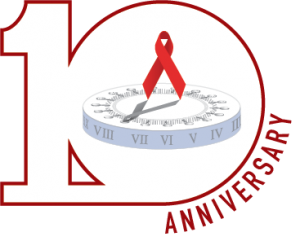10th International Workshop on HIV and Ageing
15 November 2019. Related: Conference reports, Ageing and life expectancy, HIV and Ageing 2019.
Introduction
Simon Collins, HIV i-Base
The 10th International Workshop on HIV and Ageing, now held annually in New York, continues to raise this increasingly important subject.
In addition the meeting organisers, this is largely thanks to the work of long-term US community activist Jules Levin from NATAP, who raised the urgency for greater funding for both research into HIV and ageing and better services for older HIV positive people long before the first ageing workshop – and who still continues with this primary drive.
As people living with HIV get older, we risk becoming less visible in all areas of our lives. In common with many other conditions that affect older people, our medical needs attract fewer resources, until at certain age thresholds – whether this is at 65, 75 or 85 – we fall off the priority to even access referral services for research studies, health screening or even treatment.
An easy example, raised in open discussions at the workshop, is that most, perhaps all, phase 3 studies for new antiretroviral drugs, have upper age limits (above 65 years) as an exclusion criteria. This is also the case in many cure-related studies. And yet in the US, where much of this research is funded, the majority of HIV positive people are now older than 50 years old.
As older people living with HIV, our lives become more difficult with new health complications: diabetes, cancer, osteoporosis, pancreatitis, heart attacks and stroke, frailty, failing memory and neurological changes that are difficult to report and manage.
ART still remains transformational – especially if started early – with most long-term HIV-related complications likely to be linked to the years before diagnosis and treatment. For example, the long-term impact of HIV on neurological changes were highlighted in a recent paper from the POPPY study. Age-related changes shown in CT brain imaging scans were similar for HIV positive people on ART and well-matched HIV negative controls. Differences that did occur for HIV positive people were explained by duration of untreated HIV.
Despite our accumulating experience of healthcare, our ageing HIV positive voices are heard less often. We ask reasonable and important questions about our future only to learn that there is very limited data to inform the answers.
So this workshop is vitally important and each year the programme adds to research, often in areas that are not included in other medical meetings.
Highlights this year including many studies referencing the importance of frailty as a syndrome that is clinically more important than its individual symptoms, the important differences between loneliness and social isolation in HIV care, the safety of smoking and/or vaping and reviews on medical use of marijuana.
This year the workshop had its highest attendance and number of submitted abstracts, helped by moving the venue three years ago to New York.
The programme for the conference is online.
https://www.virology-education.com/event/previous/10th-hiv-aging-workshop-2019/
Abstracts, PowerPoint slides and posters will be posted online shortly after the workshop.
http://www.infectiousdiseasesonline.com/presentations
Highlights of the 2019 meeting are included in several short reports.
HTB reports in this issue include:
• Frailty in HIV care and the importance of lifestyle changes
• Vaping can help HIV positive people who are not motivated to quit cigarettes
• Research into use of medicinal cannabis in HIV management


 10–11 October 2019, New York
10–11 October 2019, New York